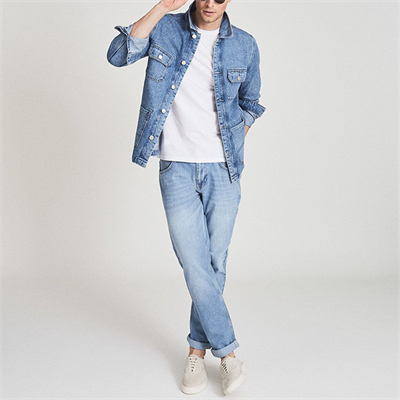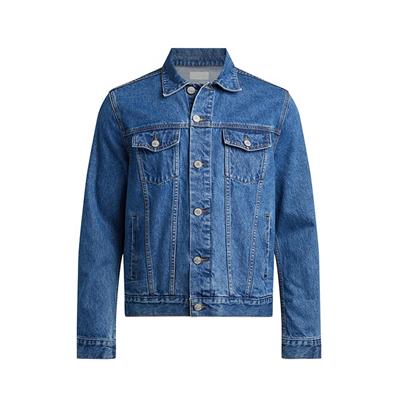1. Organic Cotton Denim:
- Look for jeans made from organic cotton, which is grown without synthetic pesticides or genetically modified organisms (GMOs). It promotes healthier soil and reduces water and chemical use.
- Brands like Patagonia and prAna offer organic cotton denim options.
2. Recycled Denim:
- Some companies use recycled denim fibers from old jeans to create new denim fabric, reducing the need for new raw materials.
- Levi’s, for example, has a “Water<Less” collection that includes recycled denim.
3. Sustainable Dyeing and Finishing:
- Sustainable dyeing processes use less water and fewer chemicals. Look for brands that use techniques like ozone washing, laser finishing, or plant-based dyes.
- Nudie Jeans and Mud Jeans are known for their sustainable dyeing and finishing methods.
4. Responsible Manufacturing:
- Choose brands that prioritize ethical and sustainable manufacturing practices, such as fair wages, safe working conditions, and reduced environmental impact.
- Brands like Eileen Fisher and Outerknown focus on ethical manufacturing.
5. Water-Efficient Denim:
- Jeans production can be water-intensive. Brands like Warp + Weft have implemented water-saving techniques to reduce their water footprint.
6. Vegan and Cruelty-Free Options:
- If you’re concerned about animal welfare, you can choose jeans made from synthetic or plant-based materials instead of traditional denim.
- Stella McCartney and Alternative Apparel offer vegan denim options.
7. Upcycled and Vintage Jeans:
- Consider shopping for upcycled or vintage jeans. These are environmentally friendly options as they extend the lifespan of clothing.
- Thrift stores, vintage shops, and online marketplaces often have a wide selection of vintage jeans.
8. Transparent Supply Chain:
- Brands that are committed to sustainability often provide transparency about their supply chain and manufacturing processes. Look for this information on their websites.
9. Rent or Buy Second-Hand:
- Renting jeans for special occasions or buying second-hand jeans can be a sustainable choice. You reduce the demand for new production and extend the life of existing garments.
10. DIY Repairs: – Learn how to repair your jeans or take them to a local tailor for mending when needed. Repairing minor damage can prolong the life of your denim.
11. Circular Fashion Brands: – Some brands are committed to a circular fashion model, where they take back old clothing for recycling or resale. Consider brands like Mud Jeans that offer this option.
It’s important to research and choose brands that align with your sustainability values. Keep in mind that sustainability can encompass various aspects of denim production, from materials to manufacturing processes and ethical practices. By making informed choices and supporting eco-friendly brands, you can contribute to a more sustainable and responsible denim industry.

















